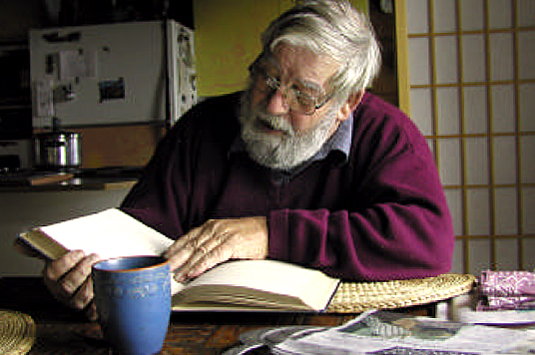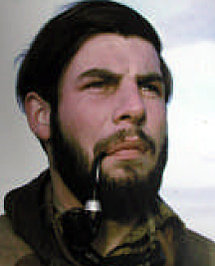RIP Colin BullIGY scientist left indelible mark on polar sciencesPosted October 8, 2010
Colin Bull, professor emeritus at The Ohio State University More on Colin Bull
Profile on page 12: The pages of an Antarctic life
New book on first university-sponsored expedition to Antarctica: Groundbreaking study. Bull was the past chairman of The Ohio State University’s School of Earth Sciences (earlier Department of Geology, Department of Geology and Mineralogy, Department of Geological Sciences); past director of the Institute of Polar Studies (now the Byrd Polar Research Center Bull was born in 1928 in Birmingham, U.K., and the family later settled in County Herefordshire, where he completed his early schooling. He often jested that he was a Hereford Bull. He attended the University of Birmingham between 1945-1952 where he completed B.Sc., M.Sc. and PhD (solid state physics) degrees. Bull launched his long career in polar work as a member of the University of Birmingham Spitzbergen Expedition (1951). After a short period in the Department of Physics at University of Cambridge, Bull joined the British North Greenland Expedition (1952-54) as a geophysicist-glaciologist, weather observer, and also assumed the role of chief scientist. Bull and his wife Gillian immigrated to New Zealand in 1956 where he held a position as senior lecturer in the Department of Physics at Victoria University of Wellington (VUW). His prior polar experience was put to good use as leader of the 1958-59 VUW Antarctic Expedition (VUWAE) expedition to the McMurdo Dry Valleys Dick Goldthwait, professor of Geology at The Ohio State University, met Bull during this period and enticed him to join him in Columbus in 1961 and assist in the founding of the Institute of Polar Studies. It was during his time at the Institute of Polar Studies that Bull helped send the first U.S. female scientists to Antarctica in 1969. [See related article: Behind the scenes.] Over the next quarter-century Bull assumed the roles of director of the Institute of Polar Studies, chairman of the Department of Geology, and dean of the College of Mathematical and Physical Sciences. After 13 years as dean, he and Gillian retired in 1986 to Bainbridge Island across Puget Sound from Seattle. Colleague Peter-Noel Webb said of his friend: “I worked with/for and knew Colin Bull for 53 years. During this time I learned much from him in his role of trusted friend, advisor, scientific colleague, administrator and boss. He was always youthful in spirit and an enthusiastic adventurer at heart. “Although the burden of administration kept him away from personal field and laboratory science, he compensated by maintaining close interactions with earth science students and researchers. He never espoused a desire to become a dour, humorless, upwardly mobile professional administrator and maintained strong personal and professional ties with his numerous science colleagues to the very end.” Survivors include his wife, Gillian, and their three grown children, Nicky, Rebecca and Andrew.
Source: The Ohio State University School of Earth Sciences. http://www.earthsciences.osu.edu/news_detail.php?newsId=109 |



For USAP Participants |
For The Public |
For Researchers and EducatorsContact UsU.S. National Science FoundationOffice of Polar Programs Geosciences Directorate 2415 Eisenhower Avenue, Suite W7100 Alexandria, VA 22314 Sign up for the NSF Office of Polar Programs newsletter and events. Feedback Form |



